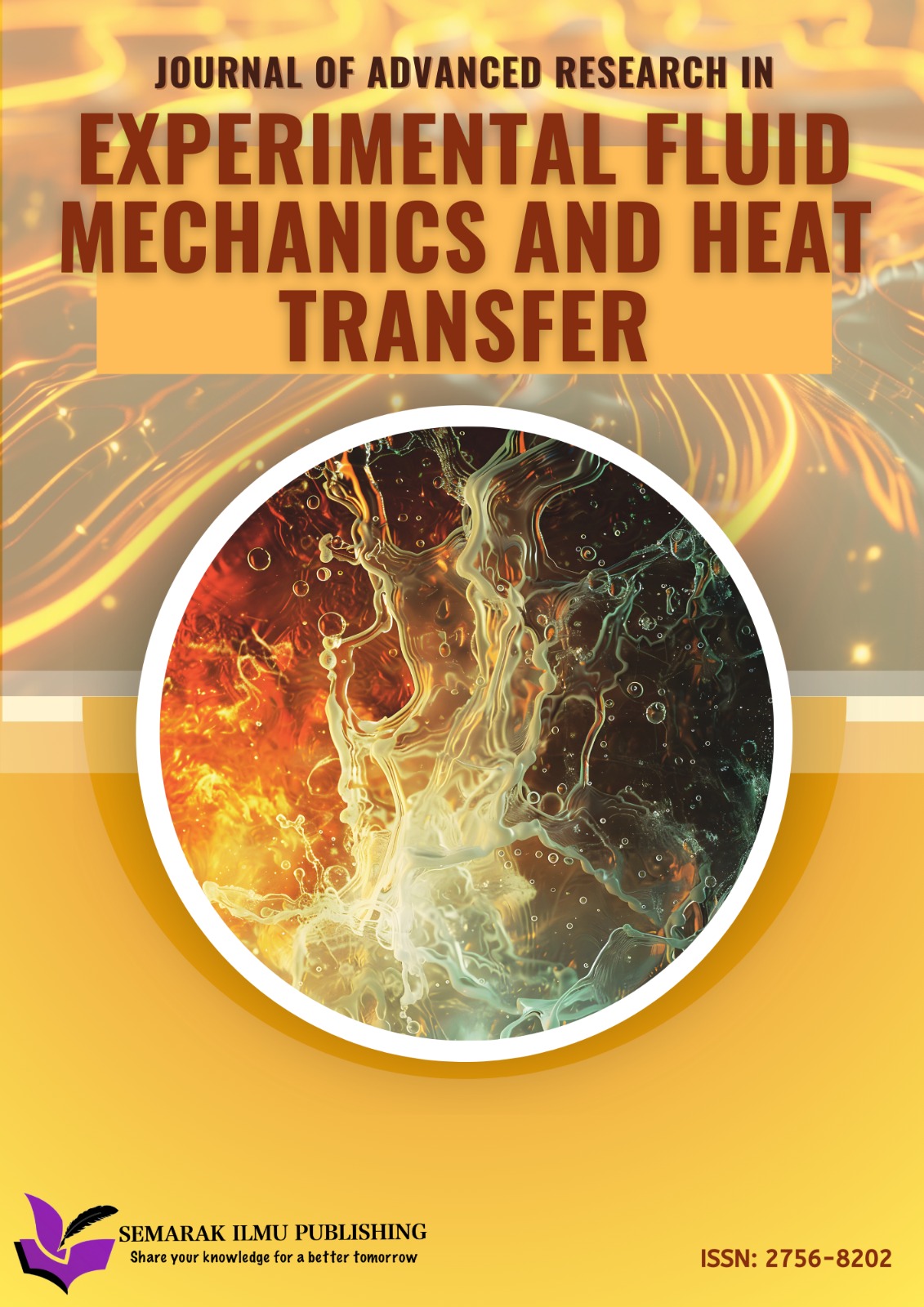The Effects of Pressure and Temperature on Flame Characteristics of Crude Palm Oil Combustion
DOI:
https://doi.org/10.37934/arfmts.98.2.165174Keywords:
Crude palm oil, direct combustion, combustion characteristics, flameAbstract
Using vegetable oil as a direct combustion fuel is an interesting energy development of lower emissions fuel. In this work, commercial cooking oil extracted from palm oil was burned using a typical nozzle having a diameter of 2 mm. Nozzle gage pressure and preheat temperature of palm oil were varied at 20, 40, 60 psi and 70, 90, 110 oC, respectively. Combustion oxidizer was air at room temperature. Equivalence ratio of ER= 1.1. To initiate combustion of the oil, a pilot flame from LPG with fixed firing rate was placed under the oil spray using a domestic stove. The experimental results shown that higher preheat temperatures and pressure accelerated combustion reactions of palm oil. The simulation also shown the same result as the experimental results. The higher preheat temperature and pressure led to high temperature, large size and long penetration of flame. The largest flame size was at 110 oC and 60 psi.
Downloads






























